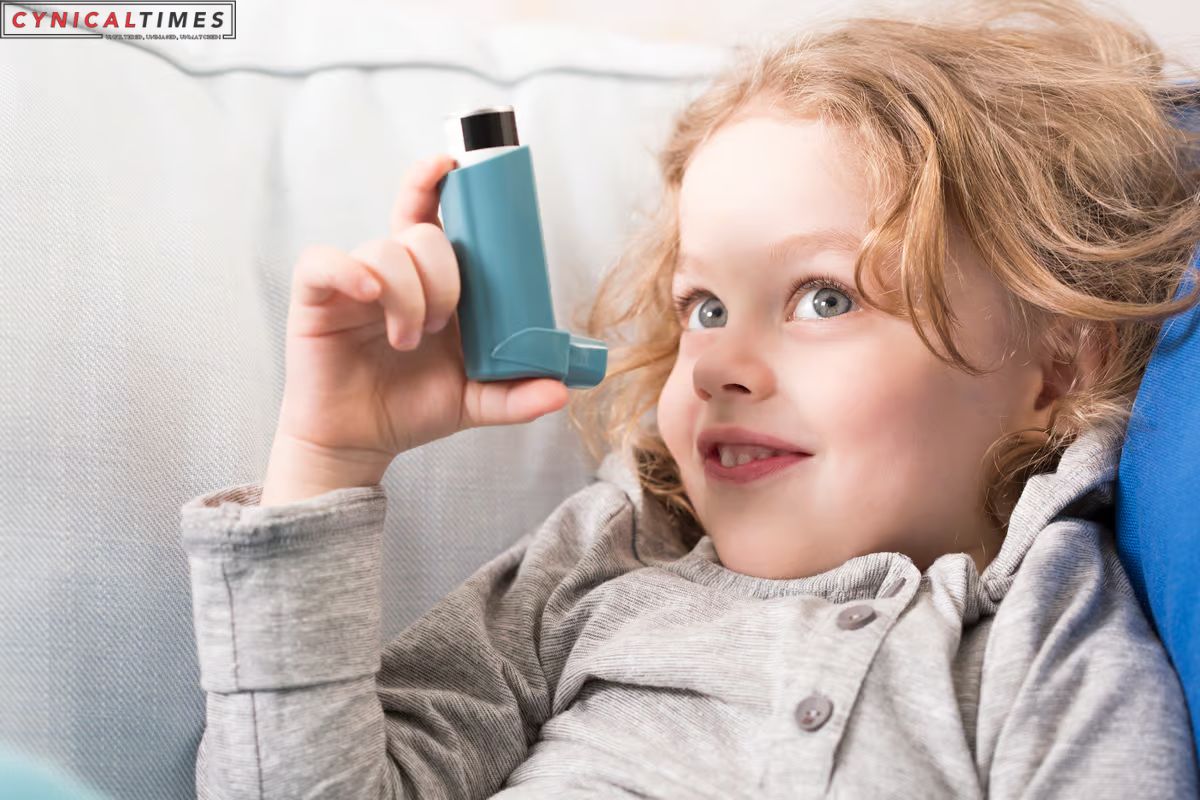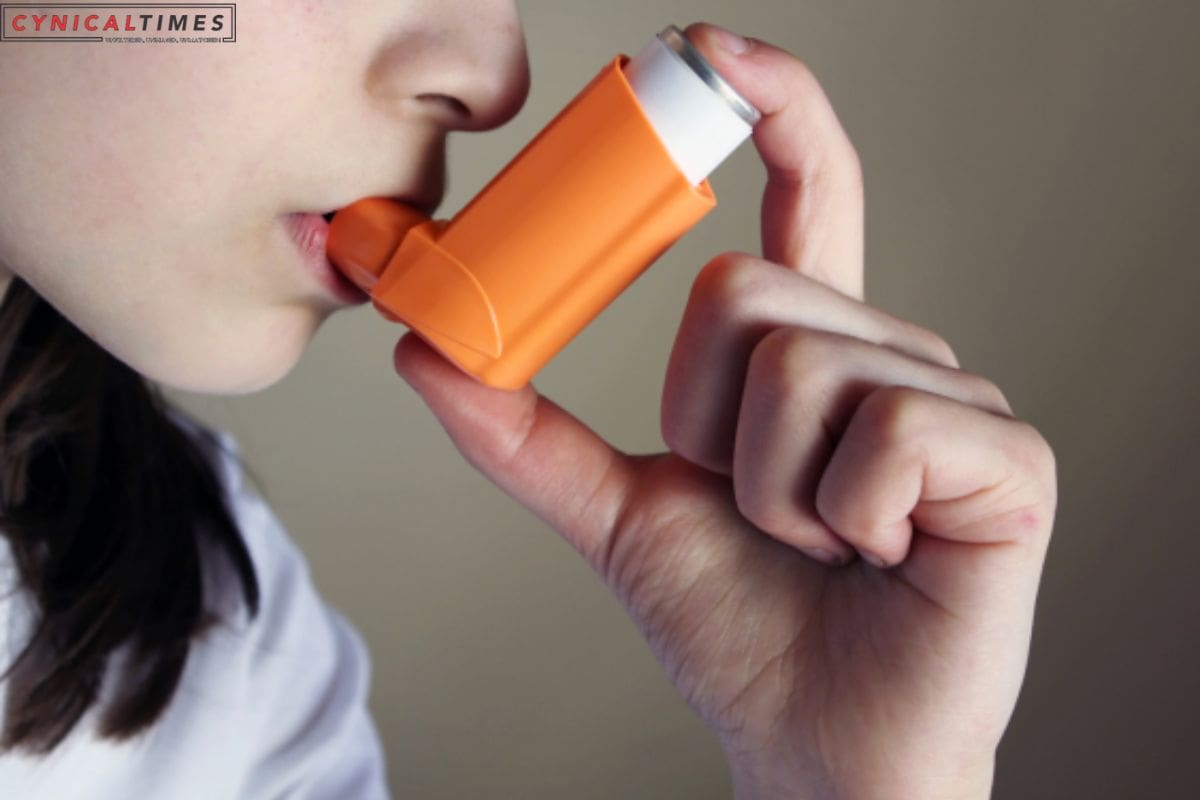Childhood Asthma and COVID 19 : In the early days of the coronavirus pandemic, uncertainty loomed regarding the role of asthma as a risk factor for severe COVID-19 infection. While it was well-established that children were generally at a lower risk of severe COVID-19 compared to older age groups, the impact of childhood asthma remained unclear.
Recent research now provides reassuring insights, suggesting that the risk of severe COVID-19 in children with asthma may not be significantly greater than in their non-asthmatic counterparts. This study, recently published in The Journal of Asthma and Allergy, meticulously examined various markers of disease severity, such as intensive care unit (ICU) admissions, in children with and without asthma throughout multiple waves of the pandemic.
Dr. Nusrat Homaira, a respiratory epidemiologist and the senior author of the study, remarked on the initial concerns: “Children with asthma are generally more susceptible to respiratory illnesses like influenza, so it was initially thought they may be vulnerable to severe infection from the COVID virus.” However, the comprehensive analysis, led by Dr. Mei Chan from the School of Clinical Medicine at UNSW Medicine & Health, offers a different perspective.
The research team analyzed de-identified data from the medical records of children under 17 years old who sought care at The Sydney Childrens Hospitals Network (SCHN) after testing positive for COVID-19 from January 2020 to May 2022. Among the 18,932 children with confirmed COVID-19 who attended SCHN, 1025 (5.41 percent) had a prior diagnosis of asthma.


Also Read :Intrusive Thoughts: Unveiling the Mind’s Unwanted Guests
Dr. Homaira emphasized the prevalence of asthma in children: “Asthma is the most common chronic respiratory condition in children in Australia, affecting about one in every 10 school-aged kids.” If COVID-19 were a significant trigger for asthma, an increase in asthma-related hospital presentations would be expected.
The study compared children with previously diagnosed asthma to those without asthma, assessing their risks of contracting COVID-19 and the severity of the disease. Measures included the length of hospital stays, ICU admissions, the use of mechanical ventilation, and mortality rates. Information on the need for asthma medications, vaccination status, and asthma severity was not available.
Remarkably, the findings showed that children with asthma were not at a greater risk of severe COVID-19 in terms of ICU admissions, mechanical ventilation use, or mortality, despite generally requiring longer hospitalization periods.
Additionally, the research unveiled an interesting trend: during the dominance of the omicron variant, the length of hospital stays for asthmatic children increased by 1.17 days. Dr. Homaira noted that during the early stages of the pandemic, children with COVID-19 were less likely to have asthma, but with the emergence of the omicron variant, the risk of COVID-19 infection among children with asthma increased compared to those without.
In conclusion, this study serves as a reminder of the importance of vigilance. Dr. Homaira stressed the need to continuously monitor emerging variants of COVID-19 and encourage children, particularly those with underlying chronic conditions, to stay up to date with their vaccinations, as these measures have been shown to help reduce the risk of severe respiratory infections.
Our Reader’s Queries
How does COVID affect a child with asthma?
According to the CDC, individuals with moderate to severe asthma may face a higher risk of developing severe COVID-19 symptoms. This is because the virus can impact the respiratory system, potentially triggering asthma attacks and even leading to pneumonia and other respiratory complications. It’s important for those with asthma to take extra precautions to protect themselves during this time.
Does COVID make your asthma worse?
A recent study from 2022 found that a significant number of patients experienced a worsening of asthma control after recovering from COVID-19. However, the study did not measure the degree of exacerbation or changes in ACT before and after infection.
Can childhood asthma go away?
Asthma is a chronic condition that unfortunately has no cure. Although it may seem like symptoms improve and disappear as a child grows older, the underlying airway inflammation may persist. This often leads to a resurgence of symptoms later in life, with approximately 50% of individuals who had asthma as children experiencing symptoms again in their 30s or 40s.
What is the best cough medicine for a child with asthma?
When it comes to treating a child with asthma who has a cough, the best course of action is to use their asthma medicine. Even if coughing is the only symptom, utilizing the albuterol nebulizer or inhaler is recommended. Along with medication, honey (or corn syrup) can be used in small doses of 2-5 mL for children over 1 year old. For children over 6 years old, cough drops may also be used. These simple remedies can help alleviate coughing and provide relief for your child.

